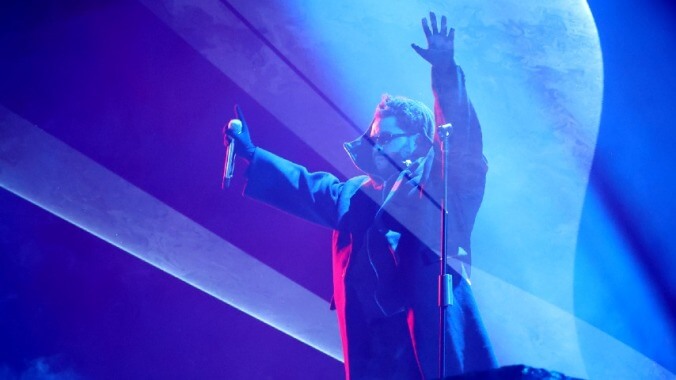I Rebuke This Comeback in the Name of Rattails
A new album? A new semi-autobiographical film? Whatever this comeback is, I wish The Weeknd would keep it.
Photo: Getty Images CelebritiesEntertainment
If you watched the 67th annual Grammy Awards on Sunday, you know that Recording Academy CEO Harvey Mason Jr. made a special appearance—not to deliver a speech about the L.A. wildfires or how music “saves,” but to promise everyone that the voting process is trustworthy. Who prompted this declaration? The Weeknd (né Abel Tesfaye), who Mason Jr. went on to introduce to perform a mash-up of tracks from his new album, Hurry Up Tomorrow.
The move signified something of a comeback for Tesfaye. In 2021, he boycotted the Grammys, claiming he was “uninterested” in its corruption and would stop submitting his music for consideration. “The trust has been broken for so long between the Grammy organization and artists that it would be unwise to raise a victory flag,” he told Variety at the time. “I think the industry and public alike need to see the transparent system truly at play for the win to be celebrated, but it’s an important start.”
Well, apparently the Academy heard him loud and clear. And for some reason, Hollywood keeps hearing him too because, on Monday, Entertainment Weekly published an exclusive feature on his forthcoming film, Hurry Up Tomorrow. That’s right. Tesfaye is returning to the screen two years after the dumpster fire that was his debut, The Idol.
Co-starring Barry Keoghan and Jenna Ortega, the film was co-written by Tesfaye, Trey Edward Shultz, and Reza Fahim…a former collaborator on The Idol. There’s red flag number one. Apparently, the story follows an artist teetering on the brink of a mental breakdown. It’s autobiographical. I’m not kidding. It really is.
-

-

-

-

-

-

-

-

-

-

-

-

-

-

-

-

-

-

-

-

-

-

-

-

-

-

-

-

-

-

-

-

-

-

-

-

-

-

-

-








































